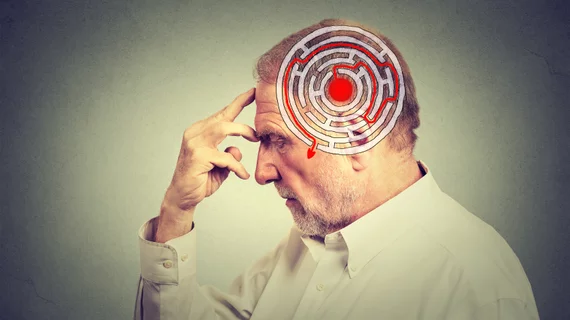Imaging-confirmed stroke rates low among COVID-19 patients, but cases are often more deadly
The rate of imaging-confirmed ischemic stroke in COVID-19 patients is relatively low, but such cases proved to be more severe compared to individuals who do not have the virus, according to new research published May 20.
That was the main takeaway from a study of more than 3,500 patients diagnosed with the disease and hospitalized at NYU Langone, 32 (0.9%) of whom had imaging-confirmed stroke. The research, published in the American Heart Association-run Stroke, also found these patients tended to be younger, on average, compared to non-COVID stroke patients.
What’s troubling is that, compared to the 46 people admitted with only a stroke, those with COVID-19 were also more likely to die upon discharge (63.6% vs. 9.3%). The latter group also suffered from more severe strokes, posting a median score of 19 on the National Institutes of Health Stroke Scale, compared to a median score of 8 for non-COVID-19 stroke patients.
“Given early reports of an association between COVID-19 and cerebrovascular disease, there is a critical, unmet need to define associations and outcomes of patients with cerebrovascular disease and COVID-19,” wrote lead author Shadi Yaghi, MD, with NYU’s School of Medicine. “Understanding factors associated with stroke in patients with COVID-19 will aid in the diagnosis, treatment, and prevention of COVID-19 associated cerebrovascular disease as well as potentially identify underlying mechanisms.”
Overall, the 0.9% rate is lower than prior research from Chinese COVID-19 studies, the authors noted, which may be due to differences in patient populations.
Similar to other studies, however, patients with COVID-19 and stroke treated at the New York health system were very sick overall; 68.8% of patients required mechanical ventilation and 81.3% had severe illness graded according to the American Thoracic Society/Infectious Diseases Society of America Criteria for pneumonia severity
“It was difficult to determine the exact cause of the strokes of the COVID-19 patients, however, most patients appeared to experience abnormal blood clotting,” Yaghi noted. “Additional research is needed to determine if therapeutic anticoagulation for stroke is useful in patients with COVID-19.”

